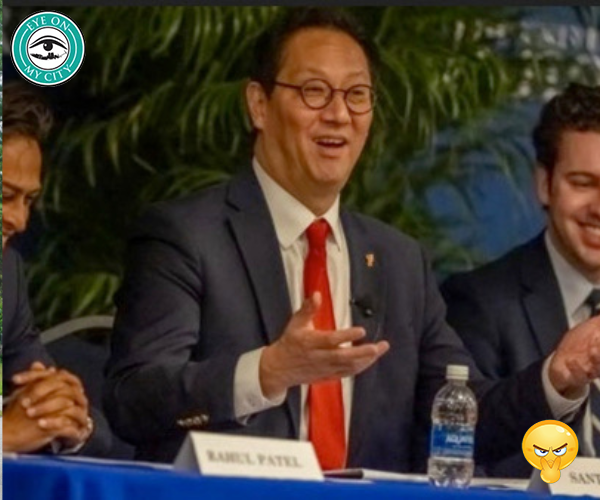It is shocking how the local media have allowed city government to gradually diminish the media’s – and the public’s — ability to get information.
In the late 1960s, Florida became a national leader in “government in the sunshine,” by opening public records and meetings that previously had been closed.
It was so broad that it was arguably overkill, and has been toned down over the years, but that’s another story.
In the Florida Legislature, the only copies of bills often were carried in the pockets of legislators and meetings to discuss issues often were closed to reporters.
In the 1970s, as a result of the new sunshine laws and the eagerness of the new consolidated city reform government to gain acceptance with the public, sunshine was abundant.
Reporters roamed at will in City Hall, the courthouse and police headquarters. Politicians and bureaucrats were accessible and, for the most part, cooperative. Records and information were readily available.
That has changed. The public is denied much access to public buildings and records are difficult to find. The latter is even more difficult to explain given the ability to use the Internet today.
But the local media shamefully have just sat by and watched access diminish.
Fortunately, City Council President Anna Lopez Brosche was concerned enough about the situation lately to create a Task Force on Open Government.
In its final report, the task force said:
“Our examination over three months taught us that the City of Jacksonville, especially the current Administration and City Council, should aspire to greater openness and transparency and should adopt specific measures outlined in this report toward that goal.”
Specific findings of the task force included:
- The Administration requires mayoral appointees to review and sign off on public records requested by the media before they can be released even after these records are deemed public by the General Counsel.
- The Administration (in an effort to control its message) does not allow department heads to interact directly with journalists. (Emphasis added.)
- City Council has abandoned its previous practice of teaching the public how the legislative process works at council meetings and how and when it may comment on legislation under consideration.
- City Council committee chairs and subcommittee chairs are inconsistent in ensuring public comment, and printed agendas do not always allow for public comment.
- The City’s website is not user friendly, is difficult to navigate and is not oriented toward citizens.
- The City’s budget is difficult to understand, and its presentation is opaque.
- Archiving of public records does not appear to be uniform nor a serious concern.
- The cost of producing public records varies.
- The method of noticing public meetings is archaic, and notices are not updated in a timely manner on the city’s website or on the kiosk on the first floor of City Hall.
The task force also criticized the council for not making emails and text messages available to the public. I differ with them on that score. Even politicians need to be able to communicate without nosy people reading over their shoulders. Knowing their emails are being seen will only force them to circumvent the process and nothing scandalous likely is to be found by snooping.
But the task force is on point in criticizing the city’s Web site, www.coj.net. Eye on Jacksonville has had a lot of difficulty finding useful information there. It also is difficult to find phone numbers and email addresses for politicians, bureaucrats and city employees. Previous designs of the site have been more helpful.
The budget information also could be more accessible and more understandable.
The same criticism also could be made of the School Board. Its Web site has gotten worse over the years as well.
Both the city and the school system have platoons of highly paid public information specialists, but some of them apparently respond only when it suits them.
Brosche formed the task force after an important bill was amended but not made publicly available until a few minutes before the council had to take a final vote.
To her credit, Brosche doesn’t plan to let the task force report lie on a shelf.
She told Eye that she will follow up with legislation to implement the task force findings.
She is still formulating the bill(s), talking to legal counsel and the administration. Much of the fix could be done administratively, but if it isn’t the council is the policy-setting branch and it can act to correct the problems.
[author] [author_image timthumb=’on’]https://eyeonjacksonville.com/wp-content/uploads/2018/04/Lloyd-Brown.jpg[/author_image] [author_info]Lloyd was born in Jacksonville. Graduated from the University of North Florida. He spent nearly 50 years of his life in the newspaper business …beginning as a copy boy and retiring as editorial page editor for Florida Times Union. He has also been published in a number of national newspapers and magazines, as well as Internet sites. Married with children. Military Vet. Retired. Man of few words but the words are researched well, deeply considered and thoughtfully written.[/author_info] [/author]








